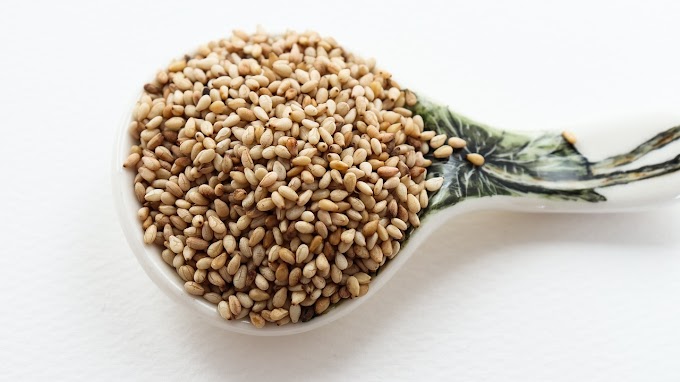Low Blood Circulation In Brain: Tips and Exercises
Introduction
The brain is one of the most crucial organs in our body. Blood circulation within the brain controls and regulates nearly all of our physical capacities. To perform its functions effectively, the brain requires a steady supply of oxygen and nutrients delivered through the circulatory system. Poor blood circulation in the brain can lead to a range of cognitive and physical impairments, including difficulty concentrating, memory loss, and even stroke. Fortunately, a variety of lifestyle changes and treatments can help improve blood flow to the brain, promoting overall well-being and health. In this article, we will explore the causes of poor blood circulation and provide recommendations on how to enhance blood flow to the brain.Blood Circulation: A Health Check
The brain is responsible for controlling and regulating almost all the functions of the human body. To carry out its functions effectively, the brain requires a continuous supply of oxygen and nutrients. This is achieved through a complex network of blood vessels that supply blood to the brain. Blood circulation is essential for maintaining the health and proper functioning of brain cells. Poor blood circulation in the brain can lead to various cognitive and physical disabilities, such as difficulty concentrating, memory loss, and even stroke. Therefore, maintaining good blood flow in the brain is crucial for optimal brain health and overall well-being.
Consequences of Poor Blood Circulation
Poor blood circulation in the brain can have a variety of negative consequences. One of the most common outcomes of poor blood circulation is cognitive impairment. Reduced blood flow can lead to challenges in memory, concentration, and decision-making, significantly impacting a person's quality of life. Additionally, poor blood circulation in the brain can increase the risk of developing neurological disorders such as dementia and Alzheimer's disease. In severe cases, poor blood circulation can cause a stroke, which occurs when the blood flow to the brain is blocked or reduced, resulting in brain damage or even death. Therefore, it is important to take steps to improve blood circulation in the brain to preserve cognitive function and avoid serious health issues.Sedentary Lifestyle and its Impact
A sedentary lifestyle is one of the leading causes of poor blood circulation in the brain. When an individual leads an inactive lifestyle, they are not engaging in enough physical activity to promote proper blood flow to the brain. This can result in a reduced amount of oxygen and nutrients being delivered to the brain, leading to cognitive impairment and an increased risk of developing neurological disorders. Prolonged periods of sitting, such as at a desk or in front of a screen, can contribute to poor posture, which can further restrict blood flow to the brain. Therefore, it is essential to participate in regular physical activity to improve blood circulation in the brain and maintain optimal cognitive function.Diet in Blood Circulation
An unhealthy diet is another factor that can contribute to poor blood circulation in the brain. Consuming a diet that is high in saturated fats, cholesterol, and sugar can lead to the buildup of plaque in the blood vessels, which can restrict blood flow to the brain. This can cause cognitive impairment and increase the risk of developing neurological disorders such as dementia and Alzheimer's disease. In contrast, a healthy diet that is rich in fruits, vegetables, whole grains, and lean proteins can improve blood circulation in the brain and support optimal cognitive function. Therefore, it is important to maintain a balanced and nutritious diet to promote good blood circulation in the brain and overall well-being.The Impact of Smoking
Smoking is a well-known risk factor for poor blood circulation in the brain. Nicotine, a chemical found in cigarettes, can cause the blood vessels to constrict, reducing the blood flow to the brain. Additionally, smoking can also contribute to the buildup of plaque in the blood vessels, further restricting the blood flow to the brain. This can lead to cognitive impairment, memory loss, and an increased risk of developing neurological disorders such as stroke and dementia. Quitting smoking is one of the most effective ways to improve blood circulation in the brain and reduce the risks of these serious health issues.High-Stress Levels and Blood Circulation
High levels of stress can also contribute to poor blood circulation in the brain. When an individual experiences stress, their body releases hormones such as cortisol and adrenaline, which can constrict blood vessels and reduce the blood flow to the brain. Chronic stress can lead to long-term changes in the body's blood vessels, causing them to become constricted and rigid, which can further restrict the blood flow to the brain. This may lead to cognitive impairment, memory loss, and an increased risk of developing neurological disorders such as stroke and dementia. Therefore, it is crucial to manage stress through techniques such as meditation, exercise, and therapy to improve blood circulation in the brain and support optimal cognitive function.The Role of Exercise
Regular exercise is one of the most effective ways to improve blood circulation in the brain. Physical activity increases the blood flow to the brain, delivering oxygen and nutrients that are essential for proper cognitive function. Exercise also promotes the development of new blood vessels, which can help improve blood flow to the brain over time. Studies have shown that even light to moderate exercises, such as walking, jogging, or yoga, can have significant benefits for brain health and cognitive function. Therefore, incorporating regular physical activity into your daily routine is an important step in maintaining good blood circulation in the brain and supporting overall health and well-being.The Benefits of Yoga
Yoga is a low-impact form of exercise that has been shown to have numerous benefits for blood circulation in the brain. Yoga involves gentle movements and stretches that can help improve the blood flow to the brain, delivering oxygen and nutrients that are essential for proper cognitive function. Additionally, yoga has been shown to reduce stress levels, which can facilitate improvements in blood circulation in the brain. Certain yoga postures, such as inversions, can also help improve the blood flow to the brain by reversing the flow of gravity and promoting blood circulation to the head. Therefore, incorporating yoga into your daily routine can be an effective way to improve blood circulation in the brain and support overall health and well-being.Diet in Promoting Healthy Blood Circulation
Diet plays a vital role in improving blood circulation in the brain. A diet that is rich in nutrients such as omega-3 fatty acids, antioxidants, and B vitamins can help promote healthy blood flow to the brain. Foods such as fatty fish, berries, nuts, leafy greens, and whole grains have been shown to have beneficial effects on blood circulation in the brain. On the other hand, a diet that is high in saturated fats, cholesterol, and sugar can contribute to the buildup of plaque in the blood vessels, leading to decreased blood flow to the brain. Therefore, it is important to maintain a balanced and nutritious diet to improve blood circulation in the brain and support optimal cognitive function. Additionally, staying hydrated by drinking plenty of water is also essential for maintaining good blood circulation to the brain.Foods to Include in Your Diet
Incorporating certain foods into your diet can help improve blood circulation in the brain. Foods that are rich in omega-3 fatty acids, such as fatty fish like salmon and mackerel, have been shown to have beneficial effects on blood circulation in the brain. Antioxidant-rich foods such as berries, dark chocolate, and green tea can also help improve blood flow to the brain by protecting against the buildup of plaque in the blood vessels. Leafy greens such as spinach and kale are rich in vitamins and minerals that are essential for maintaining healthy blood vessels and promoting good blood circulation. Additionally, foods that are high in B vitamins, such as whole grains, eggs, and nuts, can help support optimal cognitive function by improving blood flow to the brain. Therefore, incorporating these foods into your diet can be an effective way to improve blood circulation in the brain and support overall brain health.Foods to Avoid
Certain foods can have a negative effect on blood circulation in the brain and should be limited or avoided in your diet. Foods that are high in saturated fats and cholesterol, such as red meat and dairy products, can contribute to the buildup of plaque in the blood vessels, reducing the blood flow to the brain. Processed and fried foods, as well as foods that are high in sugar, can also have negative effects on blood circulation in the brain by contributing to inflammation and oxidative stress. Furthermore, excessive salt intake can lead to high blood pressure, which can further decrease the blood flow to the brain. Therefore, it is important to limit your intake of these foods in order to maintain good blood circulation in the brain and support optimal cognitive function.The Importance of Quitting Smoking
Smoking is a major contributor to poor blood circulation in the brain. The chemicals in tobacco smoke can damage the lining of the blood vessels, leading to narrowing and reduced blood flow to the brain. Research has shown that smoking is associated with an increased risk of stroke, dementia, and other neurological disorders that are caused by poor blood circulation in the brain. Therefore, quitting smoking is a critical step in improving blood circulation in the brain and supporting optimal cognitive function. Quitting smoking can be challenging, but there are numerous resources available to help, including nicotine replacement therapy, counseling, and support groups. By quitting smoking, you can reduce your risk of developing a range of health issues and improve your overall quality of life.Stress Reduction Techniques
High levels of stress can contribute to poor blood circulation in the brain, as stress can cause the blood vessels to constrict and reduce the blood flow. Therefore, finding effective stress reduction strategies is crucial for improving blood circulation in the brain and supporting overall health. Techniques such as meditation, deep breathing, yoga, and mindfulness have been shown to be effective in reducing stress and promoting relaxation. Additionally, engaging in activities that you enjoy, such as spending time with loved ones or pursuing a hobby, can also help reduce stress and improve blood circulation in the brain. By incorporating these techniques into your daily routine, you can improve your ability to cope with stress and support optimal cognitive function.The Benefits of Meditation
Meditation is a powerful tool for improving blood circulation in the brain and supporting optimal cognitive function. Research has shown that regular meditation practice can help reduce stress, anxiety, and depression, all of which can contribute to poor blood circulation in the brain. During meditation, the body enters a state of deep relaxation, which can help improve the blood flow to the brain and improve overall circulation. Additionally, meditation has been shown to increase gray matter in the brain, which is responsible for processing information and controlling muscle movement. By incorporating a regular meditation practice into your daily routine, you can improve your ability to cope with stress and support optimal cognitive function while also promoting healthy blood circulation in the brain.
The Role of Massage Therapy
Massage therapy is a form of physical therapy that can help improve blood circulation in the brain and throughout the body. During a massage, pressure is applied to the muscles and soft tissues, which can help improve blood flow and promote circulation. This can help reduce muscle tension, promote relaxation, and support optimal cognitive function. Massage therapy has also been shown to reduce stress and anxiety, which can contribute to poor blood circulation in the brain. By incorporating regular massage therapy into your self-care routine, you can support overall health and well-being while also improving blood circulation in the brain and supporting optimal cognitive function.The Benefits of Acupuncture
Acupuncture is a form of traditional Chinese medicine that involves the insertion of thin needles into specific points of the body. This can help stimulate the blood flow and improve circulation, which can support optimal cognitive function and overall health. Acupuncture has been shown to be effective in reducing stress and anxiety, which can contribute to poor blood circulation in the brain. By reducing stress and promoting relaxation, acupuncture can help improve blood circulation in the brain and support optimal cognitive function. Additionally, acupuncture has been shown to be effective in reducing inflammation and promoting the release of endorphins, which can help reduce pain and promote feelings of well-being. By incorporating regular acupuncture sessions into your self-care routine, you can support overall health and well-being, while also improving blood circulation in the brain and supporting optimal cognitive function.The Role of Chiropractic Adjustments
Chiropractic adjustments are a form of physical therapy that involves the manipulation of the spine and other joints in the body. This can help improve blood flow and circulation, which can support optimal cognitive function and overall health. Chiropractic adjustments have been shown to be effective in reducing pain, increasing range of motion, and improving overall health and well-being. By aligning the spine and promoting healthy blood flow, chiropractic adjustments can help improve blood circulation in the brain and support optimal cognitive function. Additionally, chiropractic adjustments have been shown to be effective in reducing stress and promoting relaxation, which can contribute to improved blood circulation and cognitive function. By incorporating regular chiropractic adjustments into your self-care routine, you can support overall health, improve blood circulation in the brain, and support optimal cognitive function.Importance of Cardiovascular Health
Maintaining good cardiovascular health is crucial for promoting optimal blood circulation in the brain. A healthy heart ensures that an adequate supply of oxygen-rich blood is pumped efficiently throughout the body, including the brain. Regular cardiovascular exercises such as running, swimming, or cycling can help strengthen the heart and improve overall blood circulation, leading to better cognitive function and reduced risk of neurological disorders. Additionally, managing conditions such as high blood pressure and cholesterol levels through a combination of exercise, diet, and medication can significantly contribute to maintaining healthy blood circulation in the brain.Hygiene and Posture for Improved Blood Flow
Practicing good hygiene and maintaining proper posture can also have a positive impact on blood circulation in the brain. Poor hygiene, especially in regard to dental health, can lead to periodontal disease, which has been linked to reduced blood flow and increased risk of cognitive decline. Additionally, maintaining a good posture while sitting and standing can help prevent the compression of blood vessels, ensuring optimal blood flow to the brain. Simple habits such as regular brushing and flossing, as well as using ergonomic furniture, can play a significant role in supporting healthy blood circulation and cognitive function.Regular Health Check-ups
Undergoing regular health screenings and check-ups is essential for early detection and management of conditions that can affect blood circulation in the brain. Conditions such as diabetes, high blood pressure, and high cholesterol levels can negatively impact blood flow, increasing the risk of cognitive impairments and neurological disorders. Regular monitoring and timely intervention through medication and lifestyle modifications can help prevent further deterioration of blood circulation and promote better brain health. Maintaining a proactive approach to healthcare can significantly contribute to preserving cognitive function and overall well-being.Sleep and Circadian Rhythm Regulation
Establishing healthy sleep patterns and regulating the circadian rhythm can also contribute to improved blood circulation in the brain. Adequate and quality sleep is essential for the body's natural repair and rejuvenation processes, including the maintenance of healthy blood vessels and optimal blood flow. Disruptions to the circadian rhythm, such as irregular sleep schedules or shift work, can negatively impact blood circulation and cognitive function. Creating a conducive sleep environment, practicing relaxation techniques before bedtime, and maintaining a consistent sleep schedule can promote healthy blood circulation in the brain and support optimal cognitive performance.Incorporating Mental Stimulation
Engaging in mentally stimulating activities and cognitive exercises can help improve blood circulation in the brain and support cognitive function. Activities such as reading, solving puzzles, learning new skills, and participating in creative endeavors stimulate neural pathways and promote the growth of new brain cells, enhancing overall cognitive abilities. These activities encourage increased blood flow to various regions of the brain, promoting neuroplasticity and supporting cognitive resilience. By incorporating regular mental stimulation and cognitive challenges into daily routines, individuals can enhance blood circulation in the brain and maintain cognitive vitality as they age.Community and Social Engagement
Maintaining a strong social network and actively participating in community activities can also contribute to improved blood circulation in the brain. Social engagement has been linked to lower levels of stress and improved emotional well-being, which can positively influence blood flow and cognitive function. Building and nurturing relationships, participating in group activities, and volunteering can promote a sense of belonging and purpose, leading to improved overall brain health. By fostering meaningful social connections and contributing to the community, individuals can support healthy blood circulation in the brain and promote optimal cognitive function.Awareness of Potential Risk Factors
Being aware of potential risk factors that can contribute to poor blood circulation in the brain and seeking early intervention can play a crucial role in maintaining brain health. Understanding personal risk factors such as family history, lifestyle habits, and pre-existing health conditions can help individuals make informed decisions to mitigate potential risks. Seeking medical advice at the earliest signs of cognitive impairment or changes in cognitive function can lead to timely intervention and management, preventing further deterioration of blood circulation and cognitive abilities. By staying informed and proactive, individuals can take necessary steps to preserve brain health and overall well-being.Incorporating Mindfulness Practices
Practicing mindfulness techniques such as mindfulness-based stress reduction (MBSR) and mindfulness meditation can contribute to improved blood circulation in the brain. Mindfulness practices encourage present-moment awareness and non-judgmental observation, promoting relaxation and reducing stress levels. By incorporating mindfulness into daily routines, individuals can help regulate blood pressure, enhance blood flow, and support optimal cognitive function. Mindfulness practices have also been associated with improved emotional resilience and enhanced overall well-being, further contributing to healthy blood circulation in the brain.The Role of Genetics in Blood Circulation
Understanding the role of genetics in blood circulation can provide valuable insights into individual susceptibility to circulatory-related conditions and cognitive impairments. A familial history of cardiovascular diseases, stroke, or neurological disorders can indicate potential genetic predispositions that may affect blood circulation in the brain. Genetic testing and counseling can help individuals assess their risk factors and make informed decisions regarding lifestyle modifications and preventive measures. By understanding the interplay between genetics and blood circulation, individuals can take proactive steps to promote brain health and overall well-being, tailored to their unique genetic makeup.Developing a Comprehensive Wellness Plan
Developing a comprehensive wellness plan that integrates various lifestyle modifications, therapeutic interventions, and regular health monitoring can significantly contribute to improving blood circulation in the brain and supporting cognitive function. A holistic approach that encompasses physical, mental, emotional, and social well-being can help individuals maintain a balanced and healthy lifestyle. Consulting with healthcare professionals, nutritionists, physical therapists, and mental health practitioners can aid in the development of a personalized wellness plan that addresses individual needs and promotes optimal brain health. By actively participating in the implementation of a comprehensive wellness plan, individuals can take proactive steps to support healthy blood circulation in the brain and enhance overall cognitive function.Conclusion
In conclusion, maintaining healthy blood circulation in the brain is essential for optimal cognitive function and overall health and well-being. Poor blood circulation can lead to a range of health issues, including cognitive decline, stroke, and other serious conditions. Fortunately, there are many lifestyle changes and therapeutic interventions that can help improve blood circulation in the brain, including exercise, yoga, meditation, massage therapy, acupuncture, and chiropractic adjustments. By incorporating these techniques into your daily routine, you can support healthy blood circulation in the brain and promote optimal cognitive function and overall health and well-being. It is important to consult with your healthcare provider before starting any new exercise or treatment program to ensure that it is safe and suitable for your individual needs.FAQ's
1. What are the early signs of poor blood circulation in the brain?Early signs of poor blood circulation in the brain may include difficulty concentrating, memory lapses, frequent headaches, dizziness, and changes in cognitive function. Individuals may also experience fatigue, weakness, and numbness in the extremities, indicating potential circulatory issues that require medical attention.
2. How can I determine if I have poor blood circulation in the brain?
Consulting with a healthcare provider is essential for an accurate diagnosis of poor blood circulation in the brain. Medical professionals can conduct a thorough assessment, including physical examinations, neurological evaluations, and diagnostic tests such as imaging scans and blood flow assessments, to identify any underlying circulatory issues and determine the appropriate course of treatment.
3. Can poor blood circulation in the brain be prevented?
Implementing a healthy lifestyle that includes regular exercise, a balanced diet, adequate hydration, stress management, and avoidance of harmful habits such as smoking can significantly reduce the risk of poor blood circulation in the brain. Maintaining regular health check-ups and adhering to preventive measures can also help identify potential risk factors and promote early intervention to prevent or minimize circulatory-related issues.
4. What are some effective exercises for improving blood circulation in the brain?
Engaging in aerobic exercises such as brisk walking, jogging, cycling, and swimming can help improve blood circulation in the brain by promoting cardiovascular health and enhancing overall blood flow. Additionally, activities that involve coordination, balance, and flexibility, such as yoga, tai chi, and Pilates, can support blood circulation and cognitive function by stimulating various muscle groups and promoting relaxation.
5. Are there any dietary supplements that can improve blood circulation in the brain?
Certain dietary supplements, such as omega-3 fatty acids, ginkgo biloba, and vitamin B complex, have been suggested to support healthy blood circulation and cognitive function. However, it is essential to consult with a healthcare provider before incorporating any dietary supplements into your routine, as individual needs and medical considerations may vary. Healthcare professionals can provide guidance on suitable supplements and their potential interactions with existing medications or health conditions.
6. Can stress management techniques help improve blood circulation in the brain?
Practicing stress management techniques such as meditation, deep breathing exercises, mindfulness, and relaxation therapies can help alleviate stress and promote healthy blood circulation in the brain. By reducing stress levels, individuals can support optimal cognitive function and enhance overall well-being, leading to improved blood flow and better brain health.
7. How does age affect blood circulation in the brain?
As individuals age, blood circulation in the brain may naturally decrease due to changes in blood vessel elasticity, increased plaque buildup, and decreased cardiovascular efficiency. Age-related factors, such as decreased physical activity, hormonal changes, and underlying health conditions, can also contribute to reduced blood flow and cognitive decline. Implementing healthy lifestyle practices and seeking regular medical assessments can help mitigate the effects of aging on blood circulation and support optimal cognitive function.







